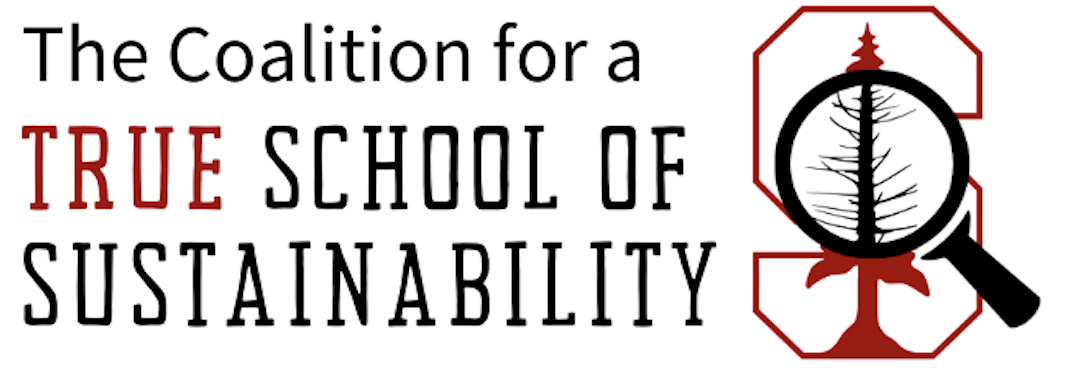Background: Peer-reviewed Papers evaluating influence of industry funding and fossil fuel industry rhetoric and disinformation
-

The Influence of Industry Sponsorship on the Research Agenda: A Scoping Review (Oct 10, 2018)
The influence on the research agenda has given the industry the potential to affect policymaking by influencing the type of evidence that is available and the kinds of public health solutions considered. The results of our scoping review support the need to develop strategies to counteract corporate influence on the research agenda. Peer-reviewed paper
-

Favourability towards natural gas relates to funding source of university energy centres (Nov 10, 2022)
We found that fossil-funded centres are more favourable in their reports towards natural gas than towards renewable energy, and tweets are more favourable when they mention funders by name. Centres less dependent on fossil funding show a reversed pattern with more neutral sentiment towards gas, and favour solar and hydro power. Peer-reviewed paper
-

Industry sponsorship and research outcome: systematic review with meta-analysis (Aug 21, 2018)
We included 27 additional papers in this update (review now includes 75 papers). Industry sponsored studies more often had favorable efficacy results, RR: 1.27 (95% CI 1.17–1.37), no difference in harms results RR: 1.37 (95% CI 0.64–2.93) and more often favorable conclusions RR: 1.34 (95% CI 1.19–1.51) compared with non-industry sponsored studies. Peer-reviewed paper
-

Weaponizing economics: Big Oil, economic consultants, and climate policy delay (Aug 25, 2021)
The role of particular scientists in opposing policies to slow and halt global warming has been extensively documented. The role of economists, however, has received less attention. Here, I trace the history of an influential group of economic consultants hired by the petroleum industry from the 1990s to the 2010s to estimate the costs of various proposed climate policies. Peer-reviewed paper
-

Discourses of climate delay (Jul 1, 2020)
Discourses of climate delay’ pervade current debates on climate action. These discourses accept the existence of climate change, but justify inaction or inadequate efforts. In contemporary discussions on what actions should be taken, by whom and how fast, proponents of climate delay would argue for minimal action or action taken by others. They focus attention on the negative social effects of climate policies and raise doubt that mitigation is possible. Here, we outline the common features of climate delay discourses and provide a guide to identifying them. Peer-reviewed paper
-

Assessing ExxonMobil’s global warming projections (Jan 13, 2023)
For decades, some members of the fossil fuel industry tried to convince the public that a causative link between fossil fuel use and climate warming could not be made because the models used to project warming were too uncertain. Supran et al. show that one of those fossil fuel companies, ExxonMobil, had their own internal models that projected warming trajectories consistent with those forecast by the independent academic and government models. What they understood about climate models thus contradicted what they led the public to believe, Science. Peer-reviewed paper
-

The clean energy claims of BP, Chevron, ExxonMobil and Shell: A mismatch between discourse, actions and investments (Feb 16, 2022)
Recently, several majors are increasingly discussing clean energy and climate change, pledging decarbonization strategies, and investing in alternative energies. Some even claim to be transforming into clean energy companies. Given a history of obstructive climate actions and “greenwashing”, there is a need to objectively evaluate current and historical decarbonization efforts and investment behavior. This study focuses on two American (Chevron, ExxonMobil) and two European majors (BP, Shell). Peer-reviewed paper
-

Unextractable fossil fuels in a 1.5 °C world (Sep 8, 2021)
Here we use a global energy systems model8 to assess the amount of fossil fuels that would need to be left in the ground, regionally and globally, to allow for a 50 per cent probability of limiting warming to 1.5 °C. By 2050, we find that nearly 60 per cent of oil and fossil methane gas, and 90 per cent of coal must remain unextracted to keep within a 1.5 °C carbon budget. This is a large increase in the unextractable estimates for a 2 °C carbon budget, particularly for oil, for which an additional 25 per cent of reserves must remain unextracted. Peer-reviewed paper
-

Evaluating fossil fuel companies’ alignment with 1.5 °C climate pathways (Aug 14, 2023)
…We evaluated the 142 largest producers of coal, oil and gas against three 1.5 °C IPCC Shared Socio-economic Pathways (SSP1-1.9, SSP2-1.9 and SSP5-1.9) from 2014 and the International Energy Agency’s Net Zero Emissions pathway from 2020. Between 2014 and 2020, 64%, 63% and 70% of coal, oil and gas companies, respectively, produced more than their production budgets under the IPCC’s middle-of-the-road (SSP2-1.9) Paris Agreement-compliant scenario. In addition, if the 142 companies we examined continued their average growth rate trends from 2010 to 2018, they would produce up to 68%, 42% and 53% more than their cumulative production budgets for coal, oil and gas, respectively, by 2050. By providing such simple metrics, based on publicly available data, our method offers stakeholders a way of easily tracking and comparing the performance of different fossil fuel producers against climate goals. Peer-reviewed paper
-

How ambitious are oil and gas companies’ climate goals? (Oct 21, 2021)
In this paper, we present a forward-looking method of estimating the life-cycle carbon emissions intensity of O&G producers based on their public disclosures, and we use it to compare companies’ targets with international climate goals. The sector is not on track. Recent trends in emissions intensity have been mostly flat. Nearly half the companies we assess have yet to set emissions targets or provide sufficient clarity on them. Of those that have set targets, most are either too shallow or too narrow. Two companies have set targets that would bring their GHG intensity below international climate goals by mid-century. Peer-reviewed paper
-

Early oil disinformation on global warming (Jan 5, 2021)
Determining the onset of organized disinformation about global warming is critical for understanding its political history and evaluating the responsibilities of fossil fuel producers and other relevant parties today. A newly discovered archival document shows the American Petroleum Institute was promulgating false and misleading information about climate change in 1980, nearly a decade earlier than previously known, in order to promote public policies favorable to the fossil fuel industry. This finding demonstrates early use of public-facing disinformation about global warming by the petroleum industry and suggests commercial fossil fuel interests played a more obstructive role in climate change discourse and policy throughout the 1980s than previously understood. Peer-reviewed paper
-

Early oil industry knowledge of CO2 and global warming (Nov 19, 2018)
“…in 1959, petroleum industry leaders were notified of the danger of CO2 accumulation by the physicist Edward Teller, who warned them of global temperature and sea-level rise by the end of the century. Thus, even before early portions of the Keeling curve were published in 1960, leaders of the API and other segments of the oil industry were informed that fossil fuel products were causing atmospheric CO2 concentrations to rise, and that such a rise was potentially dangerous.” Peer-reviewed paper
Background articles, websites, and reports
-

Study touting hydrogen — a technology favored by gas firms — was funded by gas interests, e-mails show (Nov 17, 2022)
A study by researchers at UMass Lowell on hydrogen’s potential seemed innocuous enough. But hundreds of pages of e-mail correspondence now raise questions about the influence the gas industry may have had on the report. Full article
-

Kicking oil companies out of school (Aug 16, 2022)
Faculty and staff at Cambridge are planning a vote that would require the university to stop accepting fossil fuel money for research. It’s part of an expanding movement. Full article
-

Voters Agree: Fossil Fuel Funding in Climate Research Presents Conflict of Interest (July 14, 2022)
Most likely voters agree with the statement “Colleges and universities studying the impacts of climate change and sustainability should refuse donations from fossil fuel companies so they can remain unbiased in their research.” Full article
-

Universities must reject fossil fuel cash for climate research, say academics (Mar 21, 2022)
Open letter from 500 academics likens fossil-energy funding of climate solutions to tobacco industry disinformation. Full article
-

The Pernicious Influence of Big Oil on America’s Universities (Jun 8, 2020)
Stanford’s divestment debate shows how effective fossil fuel companies have been at colonizing academia. Full article
-

Environmental Justice Working Group at Stanford
The Environmental Justice Working Group has been the home for meaningful EJ on campus while the administration continues to miss its mark on EJ. Read more on the EJWG website.
-

Revealed: the ‘carbon bombs’ set to trigger catastrophic climate breakdown (May 11, 2022)
Exclusive: Oil and gas majors are planning scores of vast projects that threaten to shatter the 1.5C climate goal. If governments do not act, these firms will continue to cash in as the world burns. Full article
-

Big Oil Reality Check (May 2022)
Ultimately, no major oil and gas company considered in this analysis comes anywhere close to the bare minimum for alignment with the Paris Agreement. The companies that have collectively done the most to fuel the climate crisis cannot be trusted to confront it meaningfully. Both public- and private-sector decision-makers must take action both to destroy the demand for fossil fuels and to choke off their production. Governments and the financial sector each have key roles to play. Full report
-

Shell and Exxon's secret 1980s climate change warnings (Sep 19, 2018)
Newly found documents from the 1980s show that fossil fuel companies privately predicted the global damage that would be caused by their products. Full article
